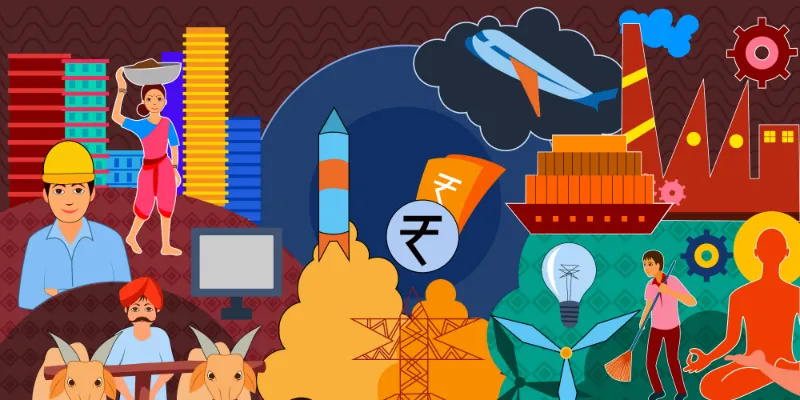How MSMEs are helping India become a financially inclusive economy
The MSME (Micro, Small, and Medium Enterprises) sector’s contribution towards the socio-economic development of India can’t be underlined enough. By generating about 120 million employment opportunities, MSMEs boast of being the second largest job creators in the country.
These small businesses also account for around 30 percent of India’s economic output. And, with as many as 65 million MSMEs operating actively across the country at present, they have the potential to solve India’s financial inclusion problem.
While the Indian economy has witnessed exponential growth over the past few years, the progress of financial inclusion is rather slow. Earlier this year, Finance Minister Arun Jaitley, said that despite the government making relentless attempts to bring a change to the scenario, it is yet to reach its target.

The numbers speak for themselves. The latest Global Findex Database released by the World Bank reveals that 190 million Indian adults don’t have a bank account, making it the world’s second-largest unbanked population after China. Also, the number of life cover policies issued in India doesn’t even account to one-third of the total population. Now, the pertinent question is how to turn the situation around. This is where MSMEs come in.
Four crore jobs in four years
For years, MSMEs have been generating numerous job opportunities for those residing in tier II and tier III cities in India. According to Union Minister Giriraj Singh, small and medium enterprises (SMEs) have created four crore jobs in the last four years. He also said that five crore jobs will be created in the upcoming year.
A significant percentage of these jobs are taken up by the suburban and rural population, enabling them to become financially independent and self-sufficient. Hence, it’s no secret that MSME empowerment is the key to financial inclusion in India.
Unfortunately, MSMEs are struggling to stay afloat owing to multiple factors. Despite being termed as the backbone of the Indian economy, they are plagued with numerous issues such as lack of sustainability, limited access to capital, lack of affordable marketing channels, and heavy regulations on opening, operating, and maintaining a venture.
In fact, when it comes to starting a new business, India is ranked 156th out of 190 countries, as per a recent World Bank survey. Things got even worse after the demonetisation of high-value currencies in 2016, as MSMEs struggled to generate revenues due to the cash crunch. And they got the final blow when the Indian government introduced the Goods and Service Tax (GST) last year. As a result, the dream of a financially inclusive India is yet to turn into a reality. While the scenario looks rather bleak, here’s how it can be improved.
Alternative lending models
In the past few decades, public sector banks’ (PSB) share in lending to the Micro, Small, and Medium Enterprises (MSMEs) sector has gone down alarmingly. This has added to the distress of the small and medium businesses, which are already having a hard time due to lack of capital.
However, several NBFs (non-banking financial companies) are coming up to the relief of MSMEs, allowing them to access credit seamlessly in order to carry out smoother operations. Thanks to their adoption of modern technology for loan processing and credit underwriting, NBFCs are able to distribute loans to MSMEs just within a matter of days.
Support from the government
The government can only reach its financial inclusion goal if it provides the right financial and structural support to the small and medium businesses. Recently, the government also announced a number of measures aimed to make access to credit easier for MSMEs, while reducing their cost of funds at the same time.
Some of the major sops include sanction of loans of up to Rs 1 crore within 59 minutes, a two percent interest subsidy on loan payments by MSMEs, and a five percent discount on interest on loan payments by exporters.
Additionally, 100 technology centres will be established across the country to provide support to small and medium businesses. With the proper implementation of these measures, the MSME sector in India is expected to go through a paradigm shift. Simultaneously, this will help the country make substantial progress in its journey towards a financially inclusive economy.
For a developing country like India, MSMEs play a vital role in more than a single way. From creating jobs at the grassroots level to aiding the GPD growth, they are the pillar of the Indian economy. More importantly, they are helping India become financially inclusive, which in turn is imperative to the socio-economic development of a country in the long run. With both the government and NBFCs coming together to provide support to them, hopefully, every MSME in India will have easy access to loans and funds in the near future.







